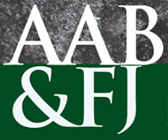Abstract
Auditing standards require an auditor to make various enquiries about liabilities in general this may entail consideration of potential litigations and claims that the audited entity may be facing. To perform this part of audit, the auditors will generally seek representation letters from lawyers of the company detailing an estimate prepared by management, confirmed by their lawyers through a representation letter, and then sent directly to the auditors.
This paper reviews the implications for the auditing profession of a case that involved auditors seeking such representation letters. The case involves litigation between the Westpac Banking Corporation and 789TEN Pty Ltd. While the Westpac case confirmed the legal position of the auditor in their task of collecting evidence in order to form an opinion in Australia, it highlights a significant anomaly under the law and should place the issue of solicitor’s representation letters as audit evidence firmly on the agenda of policymakers.
This issue of the compromise of legal privilege during the conduct of an audit is also not confined to Australia: other common law jurisdictions, such as the UK and the US, have also sought to clarify the position of auditors when issues of the integrity of legal privacy privilege arise.
Keywords: Auditing standards' liabilities, representation letters, Westpac Banking Corporation, legal privilege.
How to Cite:
Kaur, H. & van der Laan, S., (2013) “Auditing Litigation and Claims: Conflicts and the Compromise of Privilege”, Australasian Accounting, Business and Finance Journal 7(4), 3-16. doi: https://doi.org/10.14453/aabfj.v7i4.2
Downloads:
Download PDF
397 Views
8807 Downloads

